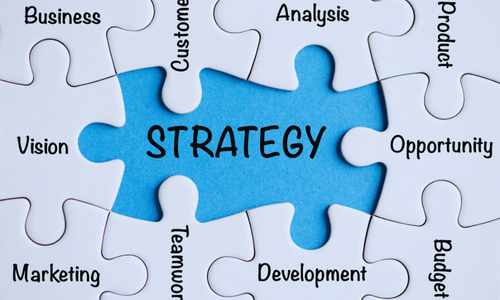
For many, the dream of homeownership represents more than just a place to live—it’s a cornerstone of long-term financial stability and wealth-building. While renting offers flexibility, owning a home provides unique opportunities to grow your financial portfolio. One of the key reasons buying a home is a smart investment is equity. But what exactly is equity, and why is it such a powerful tool for financial growth?

Equity is the difference between what your home is worth (its market value) and the amount you owe on your mortgage (the loan balance). In simple terms, it represents the portion of your property that you truly own. Over time, as you pay down your mortgage and your home’s value increases, your equity grows.
To calculate your home equity, follow this formula:
Home Equity = Current Market Value of Home – Remaining Mortgage Balance
For example, if your home is valued at $400,000 and you owe $250,000 on your mortgage, your equity is $150,000.
Equity is a key indicator of wealth in real estate. It grows over time through your mortgage payments, appreciation in property value, and any improvements you make to the property. Unlike renting, where monthly payments only benefit the landlord, mortgage payments allow you to gradually build ownership in your home.
Equity acts as a financial resource that you can leverage. You can access home equity through a home equity loan or a home equity line of credit (HELOC) to fund home improvements, pay off debt, or even invest in other opportunities. The more equity you have, the more financial flexibility you can access.
Equity provides a cushion in case the housing market fluctuates. If the value of your property drops, having a substantial amount of equity means you’re less likely to owe more than your home is worth (a situation known as being “underwater” on your mortgage). This gives you more stability in times of economic uncertainty.
Unlike other investments that can be volatile, real estate tends to appreciate in value over time. This means the longer you own a home, the more likely your equity will increase. As you continue to pay off your mortgage and your home’s value rises, your stake in the property becomes more valuable.
Equity is more than just a number; it’s a powerful tool for building financial security and wealth over time. The more equity you build, the more you have to work with in terms of homeownership benefits and future financial opportunities.
With each monthly payment, a portion goes toward the principal loan amount, reducing what you owe and increasing your equity. This is like a forced savings plan, ensuring that part of your money contributes to an asset you own rather than going to a landlord.
Historically, real estate values tend to increase over time. While market fluctuations occur, real estate has consistently proven to be a solid long-term investment. As your home’s market value rises, so does your equity.
Strategic renovations and upgrades can boost your property’s market value. Whether it’s a kitchen remodel, energy-efficient windows, or a beautifully landscaped yard, these enhancements increase the equity in your home.
Building equity in a home can significantly contribute to your net worth. Over the years, homeowners can tap into this equity to fund other financial goals, such as starting a business, paying for education, or investing in additional properties.
For many, their home becomes a cornerstone of retirement planning. Once the mortgage is paid off, the home provides a place to live without monthly housing payments, and the equity can be accessed through downsizing or home equity loans.
In many places, homeowners can benefit from tax deductions on mortgage interest and property taxes, making homeownership more affordable and financially rewarding.
While rent prices can rise with inflation, a fixed-rate mortgage ensures stable housing costs. Meanwhile, as inflation drives up property values, your home equity continues to grow.

The Brantford and Brant County areas offer unique opportunities for building equity, thanks to their growing real estate market.
Compared to larger urban centres, Brantford and Brant County still offer relatively affordable real estate. This makes it easier to enter the market while benefiting from steady appreciation as the region continues to grow.
The area is known for its balance of small-town charm and modern amenities, making it attractive to both families and professionals. High demand in these areas supports consistent property value growth, directly increasing your equity over time.
Working with a local real estate agent familiar with the Brantford and Brant County markets can help you identify properties with strong equity-building potential.
Buying your first home is a big step, but it’s also an important one for building your financial future.
First-time buyers often start with a modest home. While it may not be your dream home, it’s a stepping stone toward financial independence. As you build equity, you’ll be in a stronger position to upgrade or diversify into other properties.
In Ontario, first-time buyers can benefit from programs like the First-Time Home Buyer Incentive or the Land Transfer Tax Refund. These initiatives reduce upfront costs, helping you start your journey with less financial strain.
Every mortgage payment moves you closer to owning a valuable asset, turning your home into a powerful tool for future wealth-building.
As children leave the nest, many homeowners find themselves living in larger homes than they need. This transitional stage offers a unique opportunity to leverage the equity you’ve built to enhance your lifestyle and financial well-being.
Selling a larger family home and moving into a smaller, more manageable property allows you to access the equity you’ve built over the years. This can free up funds to invest, travel, or bolster your retirement savings.
A smaller home often means lower utility bills, maintenance costs, and property taxes. By downsizing, empty nesters can maximize their financial efficiency without sacrificing comfort.
Many empty nesters choose properties that suit their new lifestyle, such as condos or homes in active adult communities. These options often come with amenities and minimal upkeep, offering convenience and enjoyment.
The equity from your current home can also be used to help your children purchase their first home, providing them with a strong financial start while you simplify your own housing needs.
If you’re not ready to sell, consider renting out your current property. This option allows you to generate income while still retaining ownership and benefiting from continued appreciation.
By taking advantage of the equity you’ve accumulated, empty nesters can embrace this new chapter with financial flexibility, peace of mind, and the freedom to pursue their goals.
Homeownership doesn’t just benefit you—it creates opportunities for your children. Equity built in your home can be used to help them afford their first property through gifts, co-signing, or low-interest family loans.
By investing wisely in your own home or properties, you can leave behind an asset that supports future generations, ensuring financial stability and access to housing.
Teaching your children about equity and real estate can prepare them to manage and grow their own wealth. Sharing your experiences in the Brantford or Brant County market, for example, could inspire their investment journeys.

Building equity starts with setting yourself up for successful homeownership. Whether you’re buying your first property or your next, taking strategic steps can help you maximize your investment
By preparing financially, choosing wisely, and maintaining your property, you’ll be well-positioned to build equity and reap the rewards of homeownership.
Sweat equity is a powerful way to increase your home’s value without spending a fortune. It refers to the work and effort you put into improving your property, boosting its market value and, in turn, your equity.
Instead of hiring professionals, you tackle home improvement projects yourself. From painting walls to landscaping, these upgrades enhance your property’s appeal and value while saving on labor costs.
By rolling up your sleeves and investing effort into your home, you can build equity faster and enjoy the satisfaction of seeing your hard work pay off—literally.
Building equity isn’t just about watching your investment grow—it’s about using that equity to achieve your financial goals. Here are some smart ways homeowners can leverage their equity:
Use a home equity loan or line of credit (HELOC) to fund renovations or upgrades. Strategic improvements, like a kitchen remodel or energy-efficient windows, not only enhance your living space but can also increase your home’s market value, growing your equity further.
Consolidating high-interest debts, such as credit cards or personal loans, into a lower-interest home equity loan can simplify payments and save you money on interest.
Tap into your equity to pay for college tuition, medical expenses, or other significant milestones. This can be a cost-effective borrowing option compared to traditional loans.
Many homeowners use equity as a down payment for a rental or vacation property. This approach can diversify your investments and create additional income streams.
Some homeowners access equity to invest in stocks, bonds, or other financial opportunities. While this carries risk, it can also yield significant returns if done wisely.
A HELOC can act as a safety net for unexpected expenses. While it’s not advisable to rely on it routinely, having access to funds can provide peace of mind.

Real estate remains one of the most reliable forms of investment. Rental income can offset mortgage payments, while appreciation builds equity over time.
A vacation home can be both a retreat and a source of income. In regions like Brant County, properties near natural attractions or charming rural areas often have high demand for short-term rentals, allowing you to build equity while enjoying your getaway.
Owning multiple properties diversifies your assets, spreading financial risk while giving you multiple streams of income and opportunities to grow your wealth.
Inflation can significantly influence the value of your home and the equity you build. Understanding this relationship can help you better navigate homeownership as a wealth-building tool.
As inflation increases the cost of goods and services, real estate prices typically rise as well. This means that the value of your home is likely to appreciate over time, boosting your equity. For example, a home purchased for $300,000 could be worth $350,000 a few years later due to inflationary effects, even without major improvements.
If you have a fixed-rate mortgage, your monthly payments remain constant despite inflation. As home values rise and your income potentially increases with inflation, your mortgage payments become more affordable, further strengthening your equity position.
Inflation reduces the real value of money owed on your mortgage. While the nominal amount of debt remains unchanged, its purchasing power decreases, making it easier to pay off in the long term.
For those leveraging equity to invest in rental properties, inflation typically drives up rental rates, increasing your cash flow. This, combined with rising property values, accelerates equity growth.
Higher Interest Rates: Central banks often raise interest rates to combat inflation. This can make borrowing against your equity more expensive and limit affordability for prospective buyers.
Increased Costs for Repairs: Inflation can also drive up the cost of materials and labor for home improvements, impacting sweat equity projects.
Owning property is considered one of the best ways to protect your wealth during inflationary periods. While other investments may lose purchasing power, real estate tends to appreciate, offering stability and growth.
By understanding how inflation impacts your home’s value and mortgage, you can make strategic decisions to capitalize on this economic trend and strengthen your financial position.

While equity can be a powerful financial tool, missteps can hinder growth or even put your home at risk. Here are some common pitfalls to watch out for:
Taking out too much equity through loans or lines of credit can leave you financially vulnerable, especially if property values drop or your income changes unexpectedly.
A well-maintained home retains its value better. Ignoring repairs or upgrades can lead to costly issues down the road, reducing your equity.
Real estate is a long-term investment. Selling too soon after purchasing may leave you without significant equity gains, especially when considering transaction costs like realtor fees and taxes.
Missing payments not only jeopardizes your credit score but could also lead to foreclosure, wiping out your equity altogether.
Be cautious when using equity to fund nonessential expenses, like luxury vacations or unnecessary purchases. Borrowing against your home for items that don’t build value can diminish your financial stability.
Purchasing a home in a declining market or overpaying can delay equity growth. Work with knowledgeable real estate professionals to ensure you’re buying a property with strong growth potential.
Whether you’re buying your first home, investing in Brantford and Brant County, or planning for your children’s future, homeownership is a pathway to building equity and long-term financial security. Understanding your unique needs and goals can help you make the most of this powerful investment.
If you’re ready to take the next step, reach out to us below and we can guide you through the process and help you achieve your dreams of homeownership and financial growth!